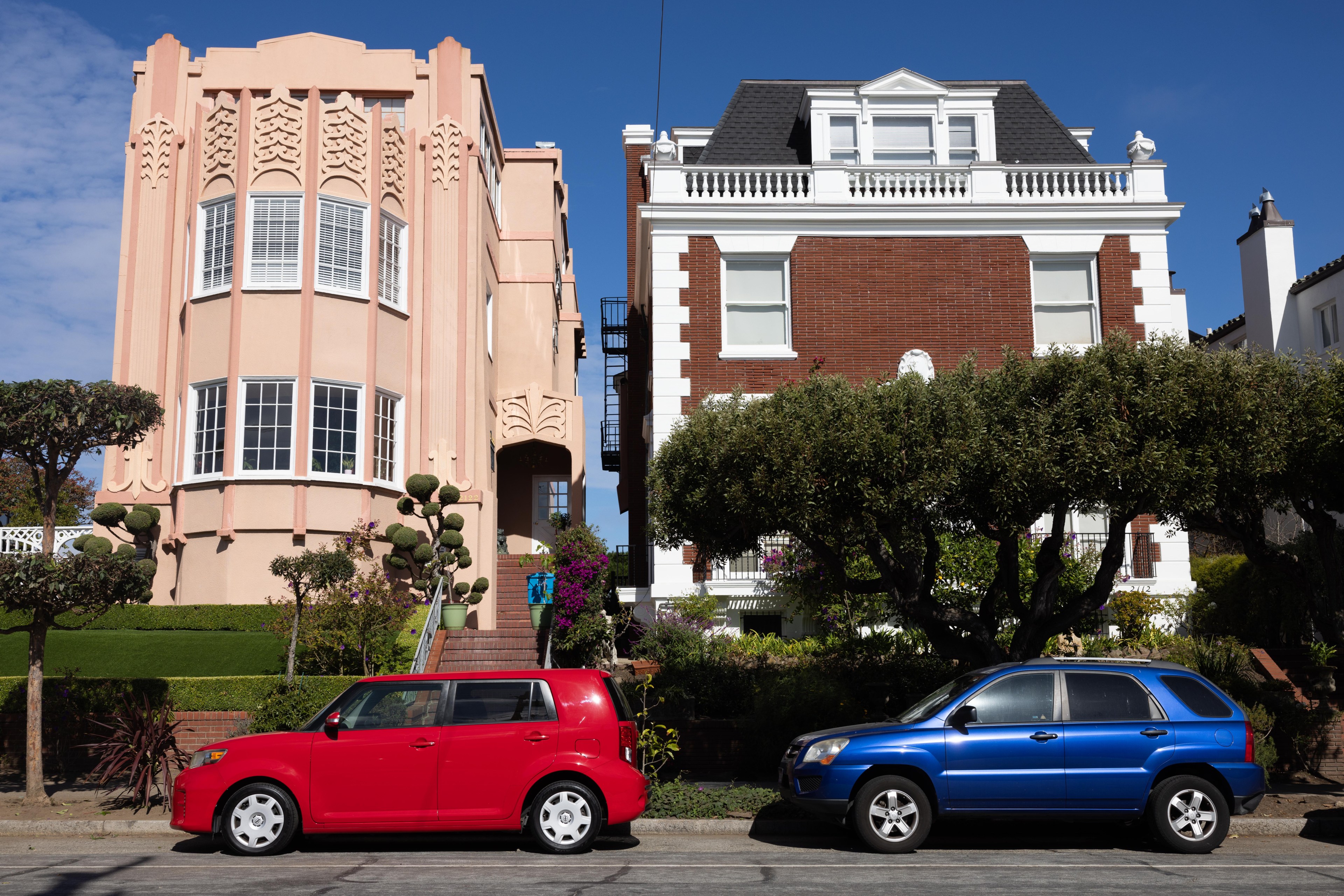New listings of homes for sale in San Francisco are down more than 40% from last year, a slowdown that persists even amid signs of rising buyer interest.
Patrick Carlisle, a chief market analyst at Compass, attributes this to a phenomenon he termed “the mortgage lock-in.” Essentially, people who purchased their homes with, say, a 3% interest rate are now looking at homes with mortgage rates that have more than doubled.
“That’s shocking to a lot of people, and that has convinced a fair number of potential home sellers not to sell,” Carlisle said.
Home prices have dipped some 20% year over year in San Francisco, a data point that has caused sellers consternation alongside broader worries about the city’s economic health. But the numbers today are compared with the “frenzied, absurd, peak” the market experienced in 2022, according to Carlisle.
A fuller picture comes with more data. Home prices have been essentially flat since the pandemic hit, and they are up 81% over the last 10 years.
“There’s just a small group of people who happened to buy at that peak, unlucky as they might be,” Carlisle said. “But it doesn’t apply to the vast majority of homeowners.”
Home sales fell off a cliff in the second half of last year as interest rates rose and mortgages became more expensive. But there are signs that homebuyers are coming out of hibernation, with an increasing number of properties receiving multiple offers.
Boom and Bust
San Francisco has weathered numerous economic storms in the last 40 years: the 1989 Loma Prieta earthquake, the early 2000s dot-com bubble burst, the 2008 housing crisis and the more recent tech bust. Each period of volatility flung the real estate market into overdrive, before prices fell and markets crashed once more.
“In every time there’s an upcycle and a boom, there becomes a narrative—not just in the San Francisco Bay Area—where people come forward and say that the world has changed,” said Carlisle, who noted that boom times can lead to “irrational exuberance,” or excessive optimism about the markets.
Conversely, during down cycles, the opposite unfolds into a sort of irrational pessimism, according to Carlisle.
Real estate price fluctuations tend to follow broader macroeconomic trends, such as rising interest rates or the 2008 national housing market collapse. San Francisco’s proximity to Silicon Valley and its position as a tech powerhouse means the Bay Area real estate market is particularly sensitive to local tech-driven market trends as well.
SF’s ties to dot-com startups, for example, exposed the city to financial volatility in the early 2000s as the bubble burst. Today, San Francisco’s Covid recovery has faltered after the shift to remote work gutted Downtown San Francisco and emptied office buildings.
Downtown Troubles Continue
In this cycle, the well-publicized struggles of Downtown are playing an outsize role in the city’s real estate trends.
The Downtown condo market is the weakest market in the Bay Area, with prices plummeting in the latter half of last year as inventory piled up. The reasons are somewhat obvious: Empty office buildings, high-profile business closures, street conditions and tech layoffs have limited the buyers for these properties.
But low prices and low sales also mean interested buyers can scoop up one of Downtown’s many available luxury condos and homes at prices not seen in years. Carlisle noted that despite Downtown’s problems, there have been a number of ultra-high-end sales above $6 million in the area this year.
“The median downtown condo sales price is now about the same as in early 2017,” Carlisle wrote in an analysis. “There is a wide choice of listings available both in new-condo projects and in the resale market.”
